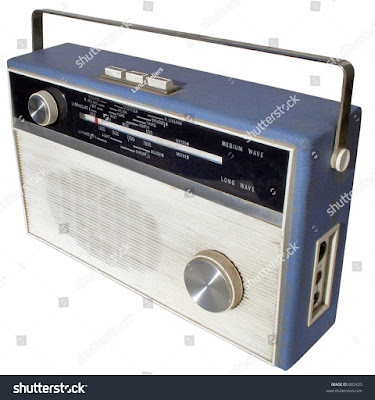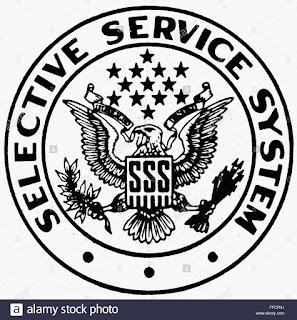The radio and the telephone and the movies that we know
May just be passing fancies and in time may go.
Love Is Here to Stay, music by George Gershwin, lyrics by Ira Gershwin, written in 1937
Nostalgia isn’t just for geezers anymore. At any time from
1900 on, a person in their thirties or forties could see just how much technology had advanced
since their childhood. When Ira Gershwin was a boy in the first decade of the
20th Century, radio is an invention still in the experimental phase
and the telephone is a toy for the rich. Of all of the inventions he mentions,
only movies could count as a popular culture phenomenon before 1910, but the
trend was too new for people to be certain it wasn’t just a fad. The oldest of
my grandparents, Grandpa Rogers, is a young man in the century's first decade, and the youngest,
Grandma Hubbard, is born in 1906.
Jump to the 1930s, when Gershwin wrote the lyrics. My
parents were kids. The telephone was a fact of life but for many people, there were still “party lines”, which meant the phone could ring in your home but you
shared the line with several of your neighbors, so the call might not be for you. Everyone in the group had to wait to hear the pattern of the ring. Movies were a huge cultural
phenomenon, much bigger than they were thirty years earlier, and radio was the first massive technological home entertainment
success.
Moving forward another three decades to the 1960s, when my
siblings and I were still living under our parents’ roof. Radio still existed,
but television had overtaken it as the primary source of home
entertainment. The graph above does not show this, only that color TV was
starting to make inroads. The movie industry was being challenged by TV and the
studio system was breaking down, but it was still a major cultural force. According
to the graph above, telephones in 1960 have about 80% market penetration in
1960 and jump up to 90% by 1970. Pretty much everyone has a phone and if party
lines still existed, it was only in sparsely populated areas.
Before I write about radio in my youth, a quick peek forward
to the 1990s. My nieces and nephews are kids and I am working in the computer
game industry. The videogame business was still new and volatile, with early
dominant companies like Atari and Coleco already fading away. Video arcades would lose market share as the home technology improved. There was still debate about
whether or not whole industry was just a fad. The dominant technologies of
today - cell phones, home computers and the Internet – had minimal market
penetration.
You probably feel like the world is moving very fast. You
might take some comfort in the realization that your grandparents and even your
great-grandparents felt much the same way.
When I was boy, radio had already been knocked out of the
top spot in the home entertainment field. Most scripted shows – dramas,
comedies, variety shows and quiz shows – were now on television and only a few
examples remained on radio. But though the kinds of shows available on radio
had shrunk, it was still the dominant source of two forms of virtually free
entertainment, sports and music.
A quick paragraph defending the phrase “virtually free”. Of
course you had to buy a radio or TV set and when you turned it on, your
electricity usage would go up, costing you a few cents every hour. But no
payment you made would get into the pockets of those who were providing
content. The government held control on the airwaves and broadcasters had to
pay for licenses and uphold standards the government would set. Using today’s
definition, it was socialism and it ran, for the most part, very smoothly.
You “paid” for radio and TV by paying attention to
commercials. It is and was a completely unenforceable contract. You could mute
commercials or run a quick errand when they were on. Once home taping becomes
an option, you could fast forward through them. And yet, this odd form of
payment has successfully funded the massive industries of radio, TV and
advertising content for decades and does not show any signs of dying out. Internet
content follows much the same business model. We are so immersed in capitalism
that the odd details of its continued existence are almost beneath our notice,
but for me, the business model of advertising is one of the oddest details by
far.
Let’s look at sports in the 1960s and early 1970s, or more
accurately, let’s listen to them. Televised sporting events were much rarer
than they are today. Baseball home games were never televised except if your
team was lucky enough to make the World Series, and even the more TV friendly
NFL and AFL would black out home games if they had not sold out well in advance
of game time. Basketball and hockey on TV were very rare occurrences. After baseball, boxing was probably the sport with the most cultural impact and horse racing was much more prevalent than it is today. In both cases, gambling was a big part of that.
Fans of a team of any sport would often become fans of the
announcers as well, and those fan bases were decidedly local. In Los Angeles,
men my age can wax as nostalgic for Vin Scully and Chick Hearn as they do for Sandy
Koufax and Jerry West. For me, the great announcers of my youth were Russ
Hodges for the Giants, Lon Simmons for the Giants and the 49ers and Bill King
for the Raiders and the Warriors.
Hodges was our link to history, having worked for the Giants when they were still in New York. He spoke his most famous line “THE GIANTS WIN THE PENNANT! THE GIANTS WIN THE PENNANT!” when Bobby Thompson hit the game winning home run in the 1951 single game playoff against the Dodgers.
Simmons could be very funny and in some ways he was my favorite growing up. I remember a ballgame where a player came to the plate and the fans were not happy.
Hodges said, "He's getting a mixed reaction from the fans."
Hodges was our link to history, having worked for the Giants when they were still in New York. He spoke his most famous line “THE GIANTS WIN THE PENNANT! THE GIANTS WIN THE PENNANT!” when Bobby Thompson hit the game winning home run in the 1951 single game playoff against the Dodgers.
Simmons could be very funny and in some ways he was my favorite growing up. I remember a ballgame where a player came to the plate and the fans were not happy.
Hodges said, "He's getting a mixed reaction from the fans."
Simmons replied. "Yes, there are loud boos and there are soft boos." The broadcast booth was close enough to the press box that you could hear the writers laughing in the background.
And then there’s Bill King. King spoke so quickly and clearly
and saw the action so precisely, he was on another level. The closest comparison I can make is to listening to Art Tatum play piano. I would listen to him even if a game was on
TV, his voice on the radio and the TV muted. I particularly remember the
1972 Raiders-Steelers playoff game known best for “the immaculate reception”, Franco Harris
catching a pass that bounced off Jack Tatum, a Raiders defender. Harris was
trailing the actual intended receiver by at least ten yards and caught the deflected ball just
before it hit the ground, then ran it in for the game winning touchdown. The main TV camera didn't catch the whole scene, but King
called the play in real time, exactly as it happened. The TV announcers were
dazed and confused and needed to find the right camera angle to make the play
clear. Back then, referees didn’t review plays, but to their credit, they got
it exactly right on the field. King got it exactly right as well, but he was a
good fifty yards away from the action.
The fans on radio couldn't see Bill King's facial hair, but it was on a completely different level as well.
The fans on radio couldn't see Bill King's facial hair, but it was on a completely different level as well.
In the Bay Area, sports radio also had a great disaster,
Harry Caray announcing for the Oakland A’s in 1970. Caray is beloved in St.
Louis and Chicago where he called the games for Cardinals, then the White Sox
and then the Cubs. In the Bay Area, we were used to the top professionals and
Caray was just an aging, back-slapping drunk. His act didn’t work here. Monte Moore, the A's main announcer before and after Caray's rocky tenure, considered 1970 the worst year of his professional life. Much later in the 1990s, Will Farrell's impression of Caray on SNL played up the drunken incoherence. It was exaggerated to be sure, but it was accurate as well.













